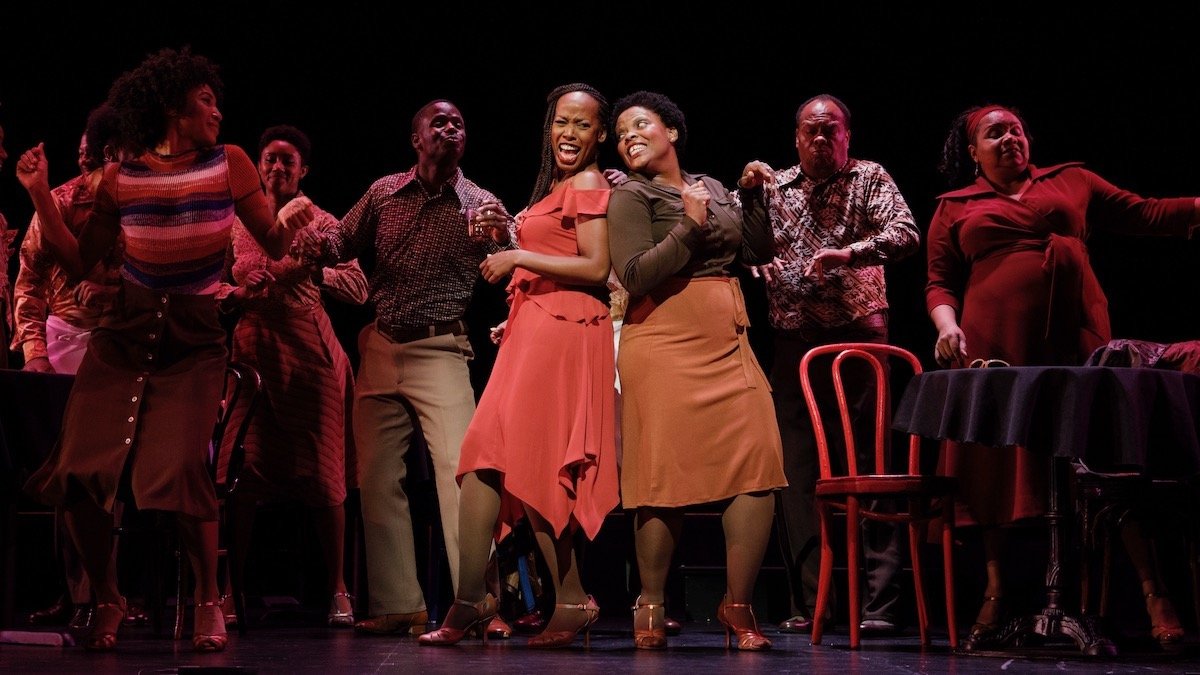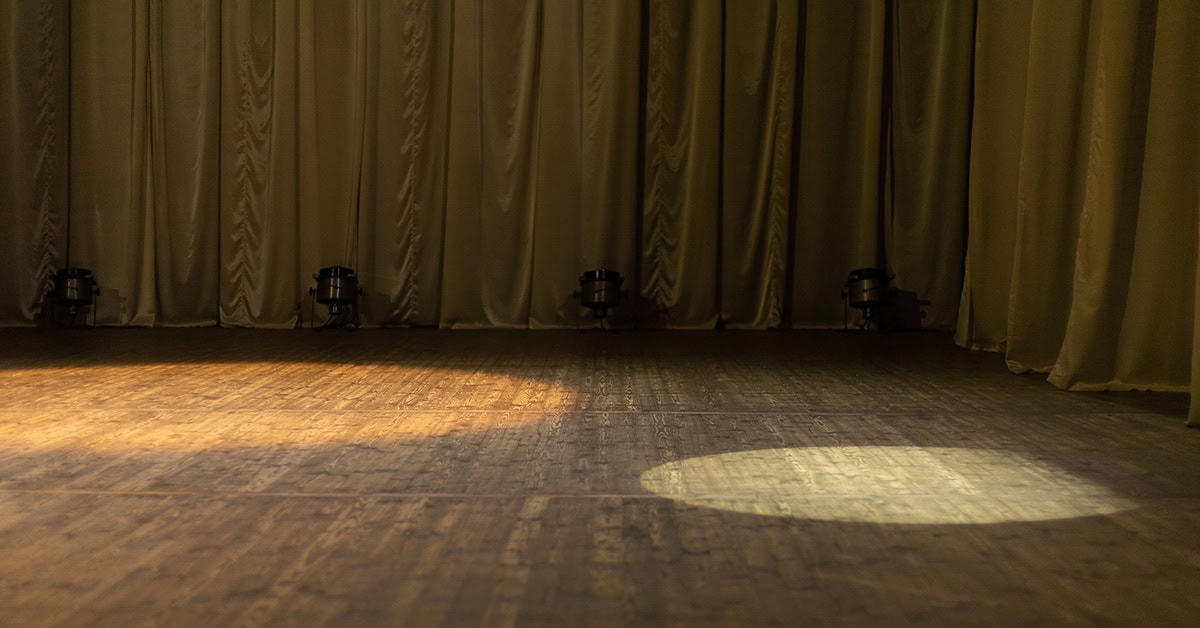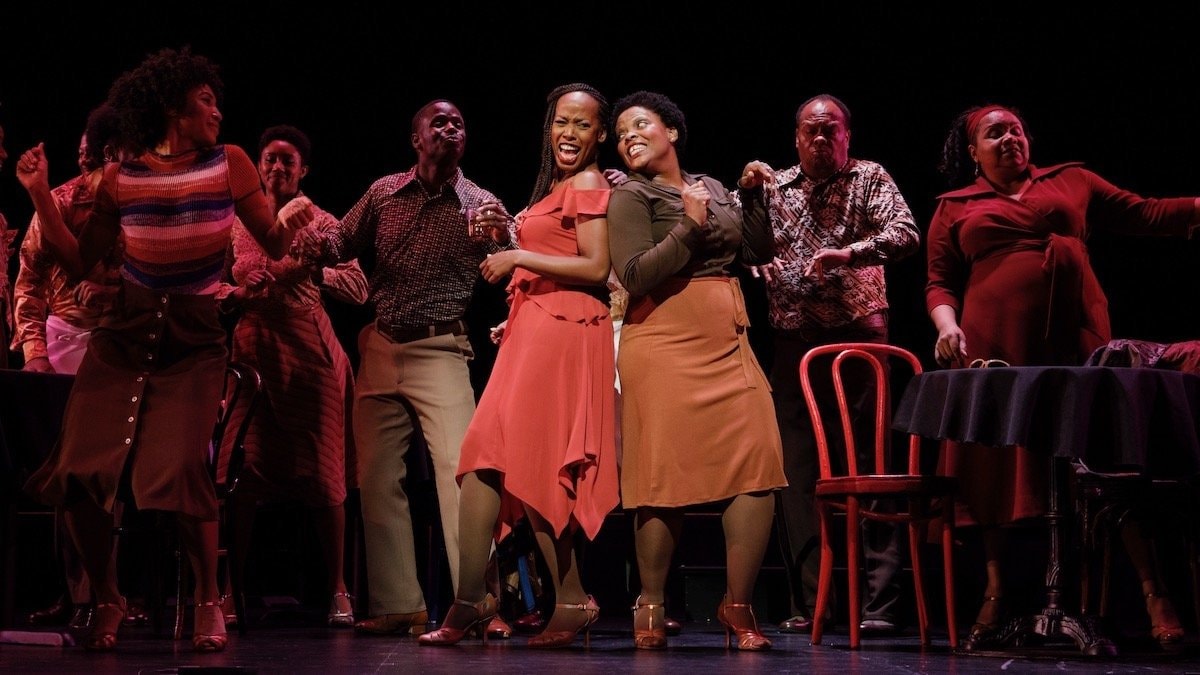
Don’t Bother Me, I Can’t Cope, Micki Grant’s groundbreaking musical celebration of the Black experience in America, opened on Broadway at the Playhouse Theatre on April 19, 1972. Fifty years later, the show remains a fresh, powerful and inspirational piece of theatre. Here’s a brief look at this innovative, history-making musical revue.
…
Subtitled “A Musical Entertainment,” Don’t Bother Me, I Can’t Cope is an ebullient mix of rock, pop, gospel, jazz, funk, calypso and folk, exploring and illuminating the African American experience. Conceived and directed by Vinnette Carroll, the original Broadway production featured a cast of 12 performers (five principals, four dancers and three singers) presenting more than 20 musical numbers. The songs ranged from joyful celebrations like “Good Vibrations” and “Love Power” to confident declarations of self-worth (“My Name Is Man,” “You Think I Got Rhythm?”), along with cathartic, occasionally humorous, expressions of grievance (“All I Need” and the title number) and contemplative ballads (“Questions,” “It Takes a Whole Lotta Human Feeling”). Balancing humor, anger, pathos and joy, the show challenged and entertained its audience with an honest, unapologetic portrayal of Blackness.
The original Broadway cast included composer/lyricist Micki Grant performing beside a dozen dynamic young singer/dancers, several of whom were making their Broadway debut. One such dancer, Ben Harney, went on to originate the leading role of Curtis Taylor, Jr. in Dreamgirls (US/UK).
The production made history in more ways than one; Don’t Bother Me, I Can’t Cope was the first Broadway show to be directed by an African American woman, and Micki Grant was the first woman to write both the music and lyrics to a Broadway musical.
An instant hit, the musical (with its title often stylized as DoN’T BOTHeR ME, I CaN’T cOPE) ran for 1,065 performances. It won the 1972 Outer Critics Circle Award for Best Musical and was nominated for four 1973 Tony Awards: Best Musical, Best Book of a Musical, Best Original Score and Best Direction of a Musical. The Original Cast Recording won the 1973 Grammy Award for Best Score from an Original Cast Show Album. Other accolades included two Drama Desk Awards and an Obie Award.
The critical response was rapturous. Clive Barnes of The New York Times found it “delightful,” calling it “a mixture of a block party and a revival meeting.” Time magazine’s T.E. Kalem said, “all heaven breaks loose on stage. This is the kind of show at which you want to blow kisses.”
A seminal work of the early 1970s, the show made it to Broadway thanks to barriers broken by earlier shows like 1969’s Hair (US/UK). Musically, Don’t Bother Me… set the stage for later shows like 1975’s The Wiz (US/UK) and its content paved a path for other Black-themed shows, including Ntozake Shange’s for colored girls who have considered suicide / when the rainbow is enuf (US/UK), which opened on Broadway in 1976.
One theme threaded throughout Don’t Bother Me… is the march of time; several songs address the arc of progress. The opening number, “I Gotta Keep Movin’,” includes this lyric:
At times when I get discouraged,
I remember what I read one day.
The race is not given unto the swift,
But to him that endureth all the way.
Later, the entire cast sings, “Time brings about a change / Time will bring a change about,” and a soloist laments, “Plenty of life left in the cup / So little time to drink it up.” Near the end of the first act, the company reiterates their belief in the inevitability of change:
You can stop a train from running,
You can turn a stream aside,
You can stop an army coming,
But no man can stop the tide.
They keep coming…
They keep coming.
Perhaps Micki Grant knew that, half a century after her groundbreaking musical opened on Broadway, America would continue to grapple with issues of race, class, injustice and inequality.
In a section entitled “Sermon,” the character of Salome (portrayed by Grant) prays, “Lord, I want to ask You to help me hold my tongue when people call me out of my name because of what I am or am not… When they say I want too much too soon, all I ask is that You add fifty years to my life while I’m being patient.”
Micki Grant did not live those fifty years; the composer/lyricist died at age 92 on August 22, 2021. Fortunately, her brilliant work continues to march onward, five decades after it premiered on Broadway.
They keep coming.
…
For more musicals celebrating the Black experience, visit Concord Theatricals in the US or UK.
Header Image: 2018 New York City Center production of Don’t Bother Me, I Can’t Cope (Joan Marcus)

Recommended Shows for Drama Festivals

The Truth Behind… The Normal Heart

